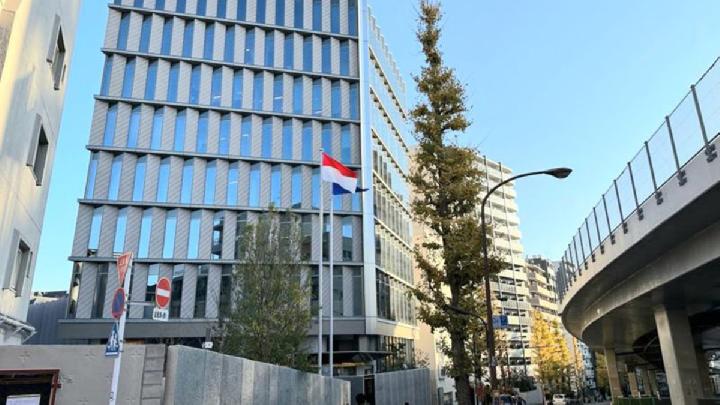There is both a rhyme and reason behind the torrent of words that form the modern Scottish fitba’ poetry oeuvre, as we never tire of declaiming in the salons of Saracen Street.
It is this. There is now a generation of poets who instinctively know the importance of the national game. They are not afraid to reclaim it from memory.
Two newly published collections spin tales of personal experience, famous history and national dismay into works which state firmly that football is part of our lives, and perhaps the art of our lives.
It would not be Scottish football poetry, however, if there was not scope for the odd, the tragic and the barely credible.
One book is formed by the influence of a grandfather who may have run away to sea and may have been a bare-knuckle fighter. The other is infused by the spirit of a grandfather who went to war, was wounded, returned home where he played in the Scottish Junior Cup final and then, almost certainly, returned to the trenches of the First World War.
These substantial dishes are sprinkled with the extra spice of such as Archie Gemmill, Diego Maradona, Alan Morton and the Renfrew side who lost the Scottish Junior Cup final of 1917. There are also the pointers to football signposts in the life of the sixtysomething poets - and the added bonus of a beguiling detective story.
Archie Gemmill wheels away in celebration after wonder goal against Holland at 1978 World Cup in Argentina
Joe Jordan sends Scotland to the 1974 World Cup with his winning header against Czchoslovakia
Diego Maradona is featured in some wonderful poems in celebration of the beautiful game
The first recital comes from Stephen Walsh, teacher and writer, who is a long-time exile in England. His High Ball to the Wee Man takes us through his life and the spirit of the nation from 1974 to 1998, otherwise known as the golden years when we had the world at our feet. The fact that the world promptly rose and kicked us in the teeth is duly recorded.
His chronicle of the six World Cup finals that the nation qualified for in this age of fitba’ enlightenment is carefully crafted. It comes in sonnets, villanelles, a ghazal, Arabic quatrains and an elegy.
Walsh credits his grandfather’s love for the work of Jimmy Shand and his accordion band for the adherence to strict rhythm. The poems bound from these forms to become joyful tributes to odysseys that ended in failure. This humour and purpose is the Scottish way after all.
‘It was a lockdown project,’ says Walsh. ‘I was listening to BBC Scotland, and Chick Young and Richard Gordon were talking about the golden years of World Cup qualification.
‘I had the idea that I wanted to write about football again.’
Walsh, 64, has written three prose books and now three collections of poetry. One of his books, Voices of the Old Firm, was an unusual venture, given he is a Hibs fan.
High Ball to the Wee Man is all-inclusive. It is beautifully wrought and thus fits any reader. Bearers of the scars inflicted by being part of the Tartan Army may find it irresistible.
‘I can remember exactly where I was at each of those World Cups,’ he says of the campaigns from 1974 to 1998.
Stephen Walsh has written three prose books and now three collections of poetry
The Tartan Army are captured in all their glory as they follow Scotland around the world
Archie Gemmill's goal in a 3-2 World Cup win over the Dutch remains a magical memory for the Tartan Army
‘It occurred to me that they were staging posts in my life,’ he says. He was introduced to this world by his grandfather, a trades union official.
‘He was a larger than life character. You had to add the world allegedly to almost every story he told. He said he ran away to sea at 12 and then returned to become a bare-knuckle fighter in a circus.’
The grandfather, Willie Quinn, was responsible for Walsh watching the 1974 World Cup in colour. ‘I went to the game against Czechoslovakia in 1973 where we won to qualify and the very next day my grandfather went out and hired a colour TV. I think he felt he was getting in quick before the country ran out of them.’
If the poems are distinctly Caledonian in nature, there is room to express a variety of emotions. The most mischievous is that of schadenfreude. ‘As a Hibs fan, 1986 was perfect for me. We had Albert Kidd and Diego Maradona.’ The nemesis of Hearts’ title challenge is twinned with El Pibe De Oro as nothing gives fans more satisfaction than the confusion of their enemies.
‘It’s that anyone but England thing,’ says Walsh. This has caused him considerable pause for meditation, given that his father was English, his wife and five children are English, and he lives in England. And he likes England when not associated with a ball.
His work carries a wistfulness but it never descends into tweeness. Indeed, he casts a cool eye over our World Cup adventures and misadventures. ‘We could have done something significant in 1974 and 1978. We could have been like Poland who went far.
‘The 74 and 78 teams didn’t feel they were coached. They belonged to an era of a natural, magical procedure, amplified by something in the national temperament.’
They played at a jig. One suited to a Jimmy Shand accompaniment.
Once an engineer, Hamish MacDonald is now the official Clydebank FC poet
MacDonald's grandfather William Grant, a veteran of the First World War, is pictured in the 1917 Renfrew team, seated second from right
A grandfather plays his part in the latest collection by Hamish MacDonald, the official Clydebank FC poet. His works, too, concerns remembrance but the subject matter flits from the glitz of World Cups to the awful scene of a world war.
MacDonald, 67, once an engineer, has pursued a highly respected career in Scottish arts, including being the first Scots scriever for the National Library of Scotland.
Square Baw is infused with the spirit of his grandfather, William Grant. Family folklore told of his involvement in the First World War. A faded photograph showed him in the Renfrew line-up for the 1917 Scottish Junior Cup final. Newspaper clippings told of his exploits for Queen’s Park, playing alongside the great Alan Morton.
But his war record was destroyed in a fire and it was a postcard that brought Grant’s exploits back to life. ‘A cousin of my mother was raking through some old boxes and came across the postcard which had been sent by my grandfather to his nephew in Clydebank.’
The postcard had a censor number on it. Through indefatigable detective work, MacDonald ascertained his grandfather had been in a bicycle regiment, had fought in the desperate battles of Loos and Ypres Salient, and had been injured by shrapnel in March 1916.
He returned to Scotland to work in the munitions industry but was still eligible for a recall to the front line. He was sent to the Durham Light Infantry after his exploits with Renfrew, Petershill and Queen’s Park and almost certainly returned to France to see out the war.
‘This may explain a family story of how he had a trial for Sunderland. The Durham connection would have led to that,’ says MacDonald.
The story has a happy ending. William Grant returned from the war and became trainer and then groundsman for Renfrew while working for an engineering firm. He died in 1971, aged 84.
John Collins fires home a penalty for Scotland against Brazil at the World Cup in France in 1998
‘He was a great character,’ says MacDonald. ‘I can recall him reciting poetry at family occasions. He was fit to the very end of his life. My brother recalls my grandfather in old age sprinting and then leaping to catch the Renfrew ferry.’
In a poetry collection that shimmers with tales of World Cups, Scottish football heritage and his beloved Clydebank, MacDonald places his grandfather at the centre of his art. He stands there both unassuming and gently inspiring.
He is also the muse to a jinking, entertaining talent. MacDonald has compiled something of wondrous substance.
He also has a bit of personal history. He was runner up in the Coupe de Monde de Poesie finals in Paris in 2022 and was semi-finalist in the world poetry slam in Rio de Janeiro in 2023.
He has shown the way in word. Now if only the national team could do something similar in deed.
High Ball to the Wee Man, by Stephen Walsh, is published by Chapbooks
Square Baw by Hamish MacDonald is published by Scotland Street Press

 2 hours ago
11
2 hours ago
11

















































